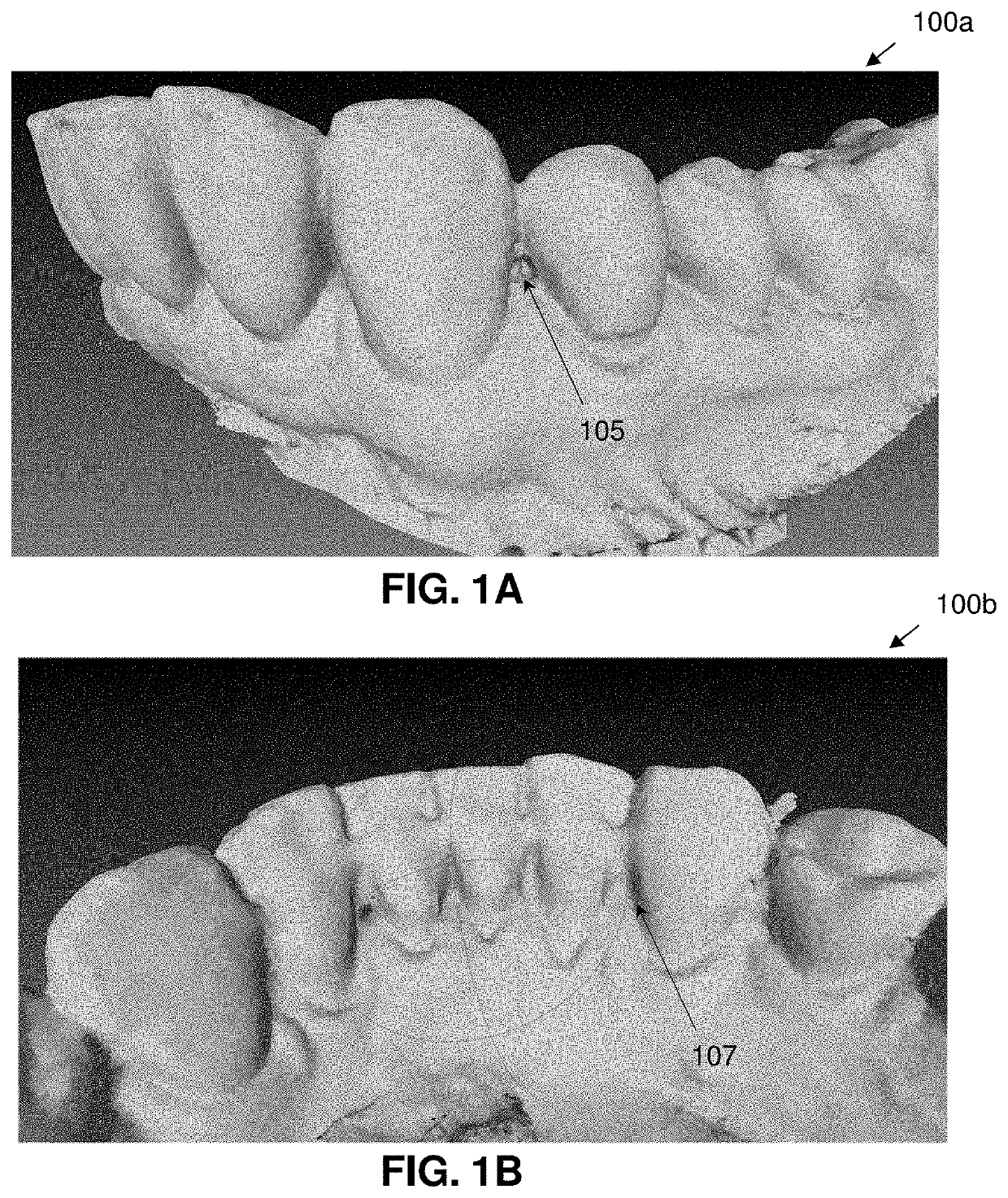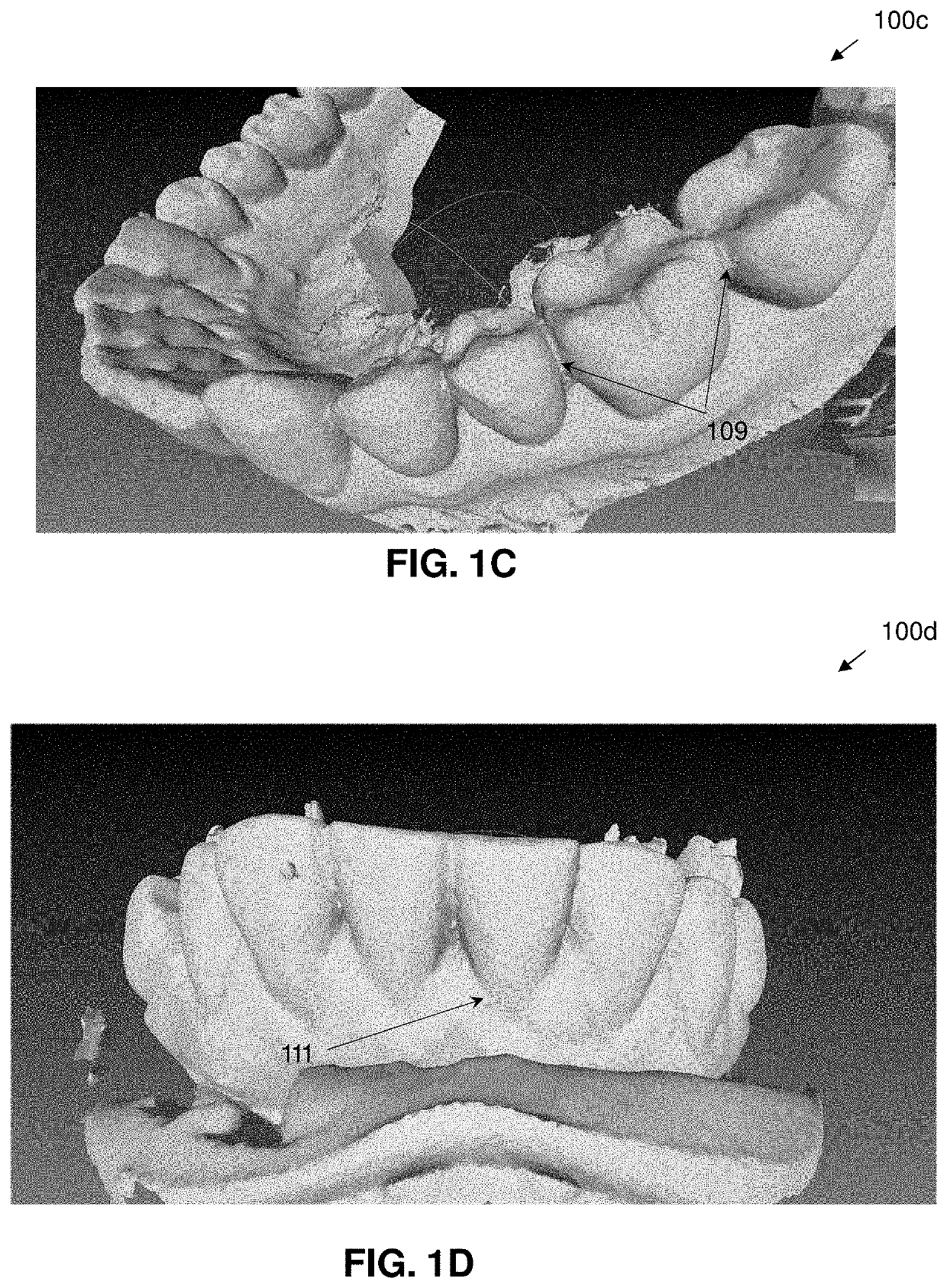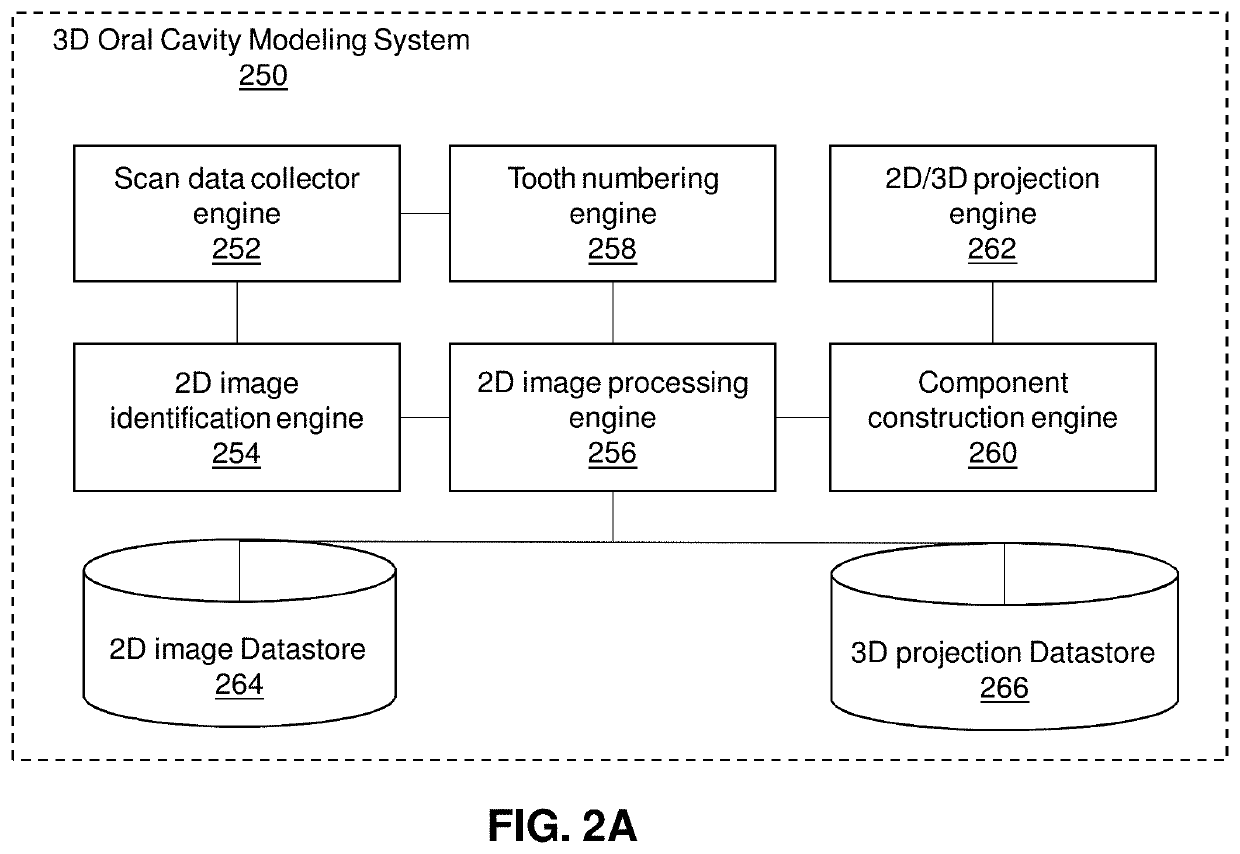Apparatuses and methods for three-dimensional dental segmentation using dental image data
- Summary
- Abstract
- Description
- Claims
- Application Information
AI Technical Summary
Benefits of technology
Problems solved by technology
Method used
Image
Examples
Embodiment Construction
[0069]While desirable, accurately segmenting and representing the portions of a three-dimensional (3D) model of an oral cavity has proven difficult. One issue is that 3D models based on two-dimensional (2D) images, including those with height map information, do not accurately represent a subject's oral cavity. Representations of interproximal regions, gingival lines, and other regions may be inaccurate due to operation of the hardware and / or software used to capture 2D images of dentition. FIGS. 1A-1D illustrate examples of 3D models 100a-100d having regions that may be difficult to resolve using traditional segmentation techniques. In FIG. 1A, for example, a 3D model 100a comprises a closed region 105 in an interproximal area between two teeth. In FIG. 1B, a 3D model 100b comprises a closed region 107 in an interproximal area between adjacent teeth. In the examples of FIGS. 1A and 1B, the adjacent teeth around the closed regions 105 and 107 appear unseparated, with inaccurately si...
PUM
 Login to View More
Login to View More Abstract
Description
Claims
Application Information
 Login to View More
Login to View More - R&D
- Intellectual Property
- Life Sciences
- Materials
- Tech Scout
- Unparalleled Data Quality
- Higher Quality Content
- 60% Fewer Hallucinations
Browse by: Latest US Patents, China's latest patents, Technical Efficacy Thesaurus, Application Domain, Technology Topic, Popular Technical Reports.
© 2025 PatSnap. All rights reserved.Legal|Privacy policy|Modern Slavery Act Transparency Statement|Sitemap|About US| Contact US: help@patsnap.com



